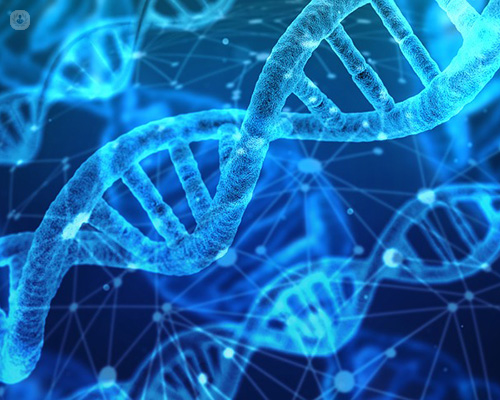


What is genetic counselling?
Genetic counselling is a process which aims to advise patients or relatives of patients of the nature and consequences of the genetic disorder of the individual in question: be it the patient themselves or, for example, a child the couple/individual is expecting. This includes educating them on the options available to them, the nature of the disorder itself, the management of the disorder, family planning and support. Genetic counselling can also test for chromosomal abnormalities in developing babies.

What does genetic counselling consist of?
Genetic counselling is different to genetic testing as during counselling you won’t have tests performed to confirm whether or not you could pass on a hereditary condition. During a session of genetic counselling you could expect to discuss the following:
Some conditions that are commonly discussed in genetic counselling include:
By gaining a better understanding of genetic conditions that affect you and your future family, you will be better able to make smart decisions.
Why is genetic counselling done?
There are numerous reasons why people or families will have genetic counselling, including:
Preparation for genetic counselling:
If you are seeking genetic counselling, it is helpful to get as much information as possible on any hereditary health conditions that run in your family. Details that can be helpful include the ages at which family members were diagnosed and what age any died, if applicable. It is also important to have as much of your own medical history to hand too.
What do abnormal results mean?
Genetic counselling does not test for genetic conditions, but it is usually the precursor to genetic testing.